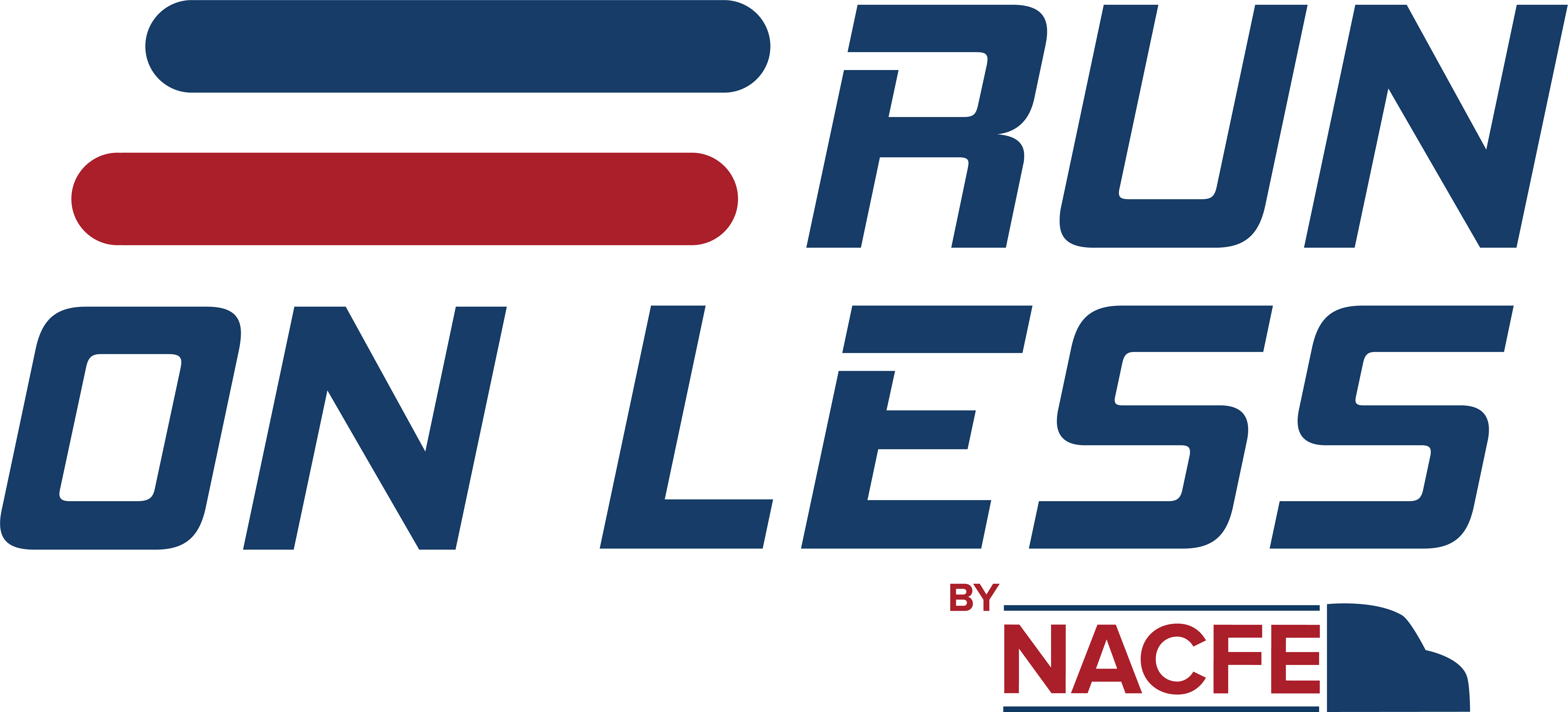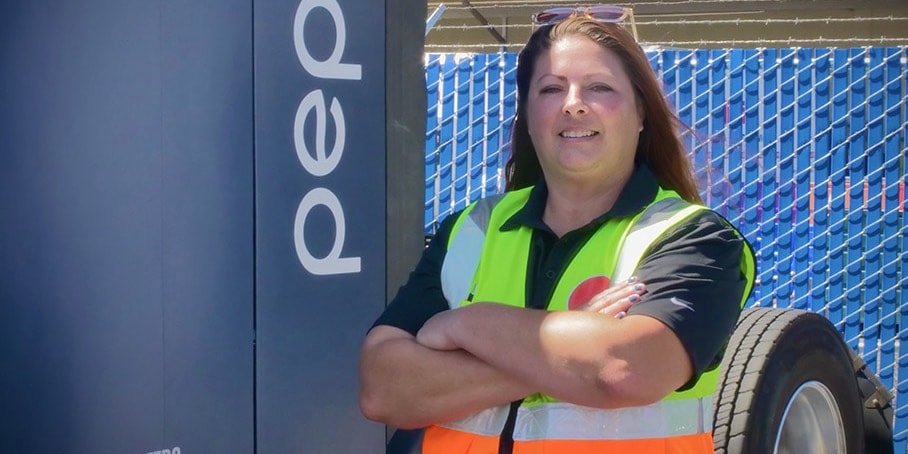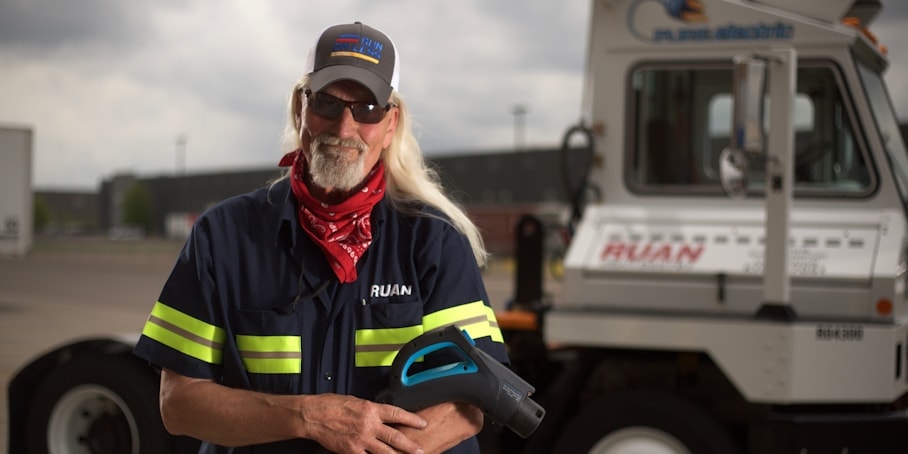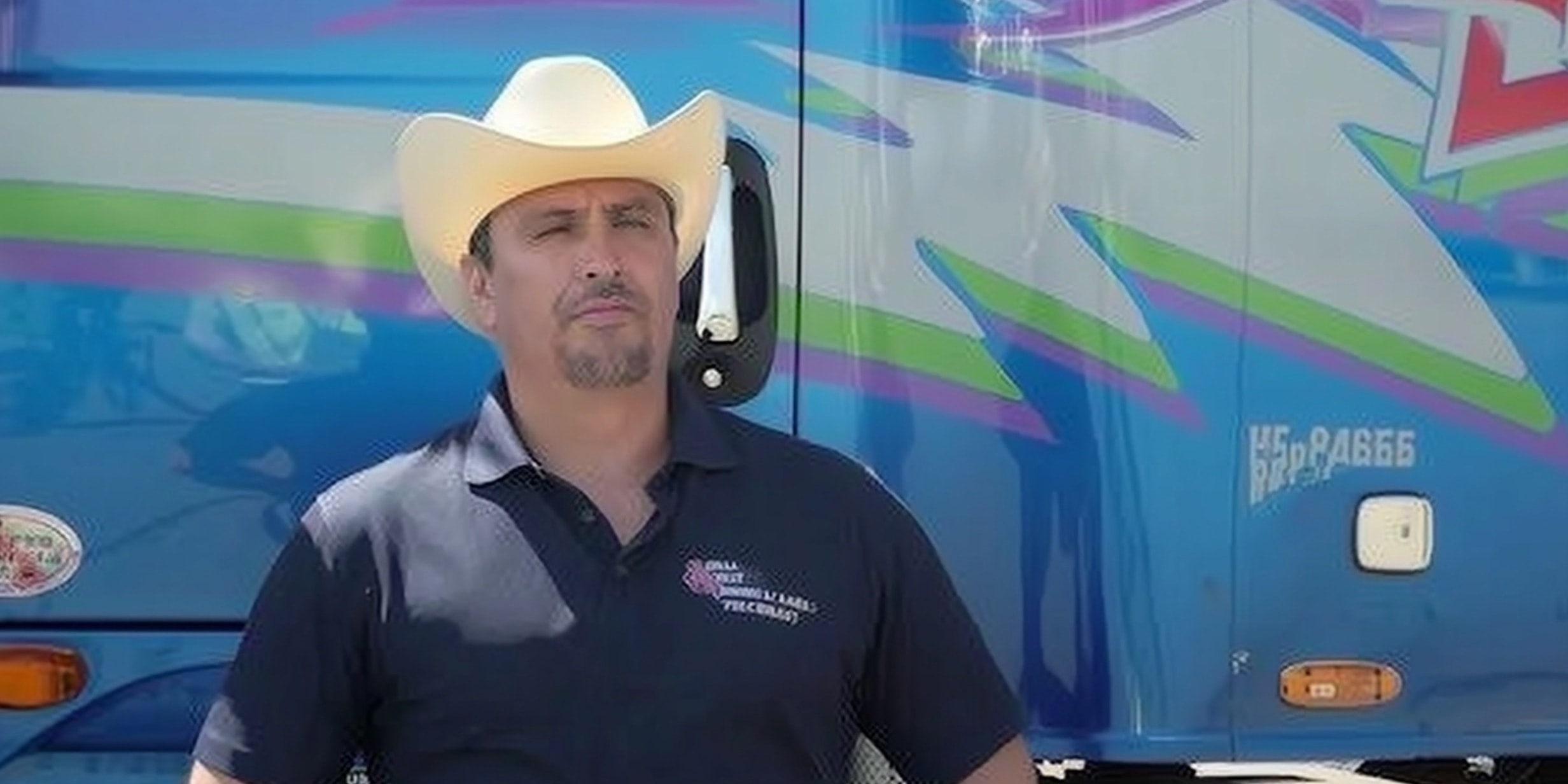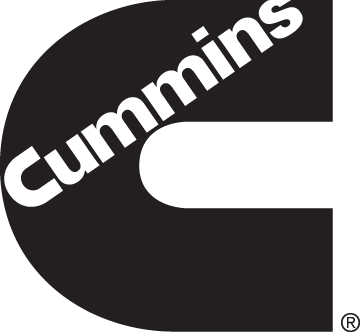NACFE Run on Less Shows How Far Electric Trucking Has Come in 2021
The trucking industry is beginning its move to an electric future. In order to leverage data from real-world experiences, the North American Council for Freight Efficiency (NACFE) and Rocky Mountain Institute (RMI) will be conducting Run on Less – Electric (RoL-E), an electric truck technology demonstration in 2021. Leading up to and throughout the Run, NACFE will showcase electric trucks in everyday operation and the actions needed to accelerate their adoption. The actual Run will begin in September of 2021.
“Run on Less – Electric will allow the whole industry to see electric trucks delivering real freight on real routes to showcase that zero-emissions goods movement is possible,” says Ryan Laskey, senior vice president of Dana’s Commercial Vehicle (CV) Drive and Motion Business.
RoL-E will feature up to 10 dedicated trucks, drivers and charging infrastructure systems across the United States and Canada, supported by their fleets and truck OEM partners. Vehicles from vans to medium-duty box trucks to heavy-duty tractors will be moving freight in different duty cycles and geographic and climate areas.
“We are pleased to recognize the bold companies — Dana, Meritor and Shell — that already have signed on to support our effort by becoming title sponsors,” says Mike Roeth, NACFE’s executive director.
Different from previous Run on Less events, the technology on the trucks in RoL-E will be at an earlier stage of development and deployment. The goal is to showcase equipment that is representative of the truck builders’ plans. Given the limited number of electric trucks in service, many of them in pre-production mode, RoL-E fleet participants will be teams made up of the fleet and their OEM partners.
Today, we are also announcing a call for participants for Run on Less – Electric. Fleets and truck OEMs can complete an application using the form available at www.runonless.com/electric. Contact Dave Schaller at david.schaller@nacfe.org or Mike Roeth at mike.roeth@nacfe.org with questions.
NACFE will be working collaboratively with diverse organizations across the large ecosystem of zero-emissions vehicles to bring a full understanding of how these trucks are being deployed.
“Shell is excited to participate in Run on Less – Electric to increase awareness of electric trucks and gather critical data to scale their adoption. We’re proud to be among the companies advancing electric truck infrastructure technology and to work with NACFE and RMI on this important effort,” says Andreas Lips, CEO Greenlots, a member of the Shell group.
“Commercial vehicles using electrified drivetrains are one of the emerging technologies that will help the trucking industry evolve into the future. Run on Less – Electric will help us gather real-world data that can then be used to help the industry make the transition to zero emissions,” says John Nelligan, President North America Truck, Meritor
To complement the demonstration and data collection components of RoL-E, NACFE and RMI will be hosting a series of virtual educational events (E-series) designed to convene industry stakeholders to discuss the why and how of electric truck deployments. The E-series is an opportunity to learn from leaders in fleet electrification beyond the formal Run participants and will include discussions with fleet managers, charging providers, utilities, engineering firms, policymakers, and more. Those interested in learning more about electric trucks and working together to overcome challenges to deploying these zero-emission vehicles are encouraged to review the E-series schedule — set to be released in April — and register their participation.
“Rather than a typical webinar where experts teach what they already know, these sessions are intended to bring together stakeholders from across the industry to support innovation, collaboration, and the acceleration of zero-emissions goods movement,” says NACFE Board Chairman and Schneiders’ EVP and Chief Administrative Officer Rob Reich.
NACFE hopes the Run will allow it to learn more about the implementation of electric trucks at fleets including things like needed infrastructure, total cost of ownership, training needs and more.
NACFE believes the RoL-E program represents a huge opportunity in delivering goods cleanly and efficiently, as well as promoting a green trucking future. Ensuring the long-term success of these zero-emission vehicles requires learning from their deployment and tests in real-world conditions, which itself takes significant time and investment.
“While the RoL-E program has sparked interest and initial underwriting support, we need more support to build on this momentum and to ensure its expansion and success for the long-haul,” Roeth says. Specifically, sponsors for the event are still needed to help underwrite the costs associated with the Run. Opportunities are available at different levels. Event sponsors already committed include: APTIV, Electrify America, Electriphi, Geotab, Lightning eMotors, National Rural Electric Cooperative Association, PepsiCo, Peterbilt, Volvo Trucks North America, and Workhorse. To discuss sponsorship opportunities, please contact Mike Roeth at mike.roeth@nacfe.org or 260-750-0106.
“It’s time for all of us to more fully understand the benefits and challenges of hauling real freight with electric trucks. RoL-E will allow us to do just that. We expect the event will help create business and customer demand for more sustainable goods movement ,” Roeth says.
NACFE Releases Run On Less Regional Report
Fort Wayne, IN — June 16, 2020 — The North American Council for Freight Efficiency (NACFE) released its in-depth report on Run on Less Regional, a fuel-economy demonstration that showed how Class 8 tractors — both diesel and CNG — and trailers can use a variety of technologies to achieve the best fuel economy possible in a variety of regional haul applications. Also included are reports on how these duty cycles would work in battery electric truck and hydrogen fuel cell trucks.
“These are truly exciting times and NACFE again helps make it clear how much improvement is possible regarding fuel economy and provides a pragmatic look at the future of moving good. Within this report, readers will learn how to play a bigger role in transforming trucking. We are challenging all manufacturers to join us in accelerating the work on reducing fuel use for current tractors and taking advantage of emerging zero-emission solutions, as we are doing within the Volvo LIGHTS project and our all-electric VNR model.”
– Magnus Koeck, vice president of marketing and brand management, Volvo Trucks North America
After careful analysis of key data from the three-week event, the NACFE team reached the following conclusions:
- High efficiency requires a commitment from both fleet leadership and drivers. The 10 fleets in Run on Less Regional averaged 8.3 MPG with the nine diesels at 8.7 MPG.
- Big data and connectivity can be used to further optimize tractor operations for each route. Many technologies exist to improve the efficiency for these regional routes. Understanding each in-depth will help in making choices to save fuel, money, and emissions.
- Fleet managers must understand and act on the variety in duty cycles so they can specify vehicles properly and coach drivers in efficient driving techniques. NACFE suggests seven duty cycles for regional haul: shuttle, dedicated, dedicated fast turn, hub and spoke, city, diminishing load and milk runs.
- The expansion of regional haul will help attract and retain drivers as drivers get home on a more regular basis. More regional haul opens many more potential people to truck driving jobs.
- Because of its return-to-base operation, regional haul is ideal for alternative-fuel vehicles, especially battery electric trucks. Infrastructure to charge electric or alternative fuel trucks is a critical barrier to deployment. Having confidence in the location of the infrastructure to support these vehicles is important to deciding to move forward with electric trucks.
“These results help illustrate what is possible today and in the future to dramatically improve efficiency. This report allows us to learn from valuable data collected from the Run and apply it toward a future of zero-emission freight movement.”
— Oliver Bishop, General Manager, Shell Hydrogen
The 10 trucks from participating fleets — C&S Wholesale Grocers, Hirschbach, Hogan Transportation, J.B. Hunt, Meijer, PepsiCo, Ploger Transportation, Schneider, Southeastern Freight Lines, and UPS. — drove 58,000 miles, recorded 237 deliveries while achieving a cumulative 8.3 MPG. This is a 38% improvement over the average Class 8 regional haul operations, which NACFE estimates to be 6.0 MPG.
If all regional haul fleets were to operate at this fuel-efficiency, the industry would save more than $9 billion in fuel over the course of a year and 30.6 tons of CO2.
“After participating in both Run on Less events, NACFE challenges us to improve and focus on our fuel efficiency. Hirschbach is top down focused on making our footprint greener and minimizing our carbon emissions. In this tumultuous business environment with uncertainty lurking around every corner, this program has energized our efforts to stay the course. We encourage fleets to review the information and data shared here; as we know you’ll benefit from it.”
— Nick Forte, Vice President of Maintenance/Equipment, Hirschbach
Complete Run on Less Regional results can be found here. A copy of the complete report can be found here.
Run on Less Report Launched
Atlanta — May 4, 2018 — The North American Council for Freight Efficiency (NACFE) today released an in-depth report on Run on Less—a first-of-its-kind fuel-efficiency roadshow, demonstrating high miles per gallon using currently available technology.
The reports provides analysis of key data from the three-week event, from which four key conclusions are drawn:
- 10 mpg does happen in the real world
- Conditions matter and need to be understood for decision making
- High mpg requires efforts in many areas
- Telematics reports and data-logging are worthwhile investments
“Run on Less demonstrated that 10.1 mpg is possible in real-world applications”, said Mike Roeth, Executive Director of the North American Council for Freight Efficiency. “The results are now detailed, and I challenge fleets to take advantage of available fuel-saving technologies, manufacturers to continue to ramp up their efforts in developing fuel-efficient products and other industry stakeholders to support them in the work of raising the average fuel economy of all fleets.”
NACFE board chairman Rob Reich, senior vice president of equipment, maintenance and driver development at Schneider, said, “I hope all fleets, manufacturers and others will use the data derived from Run on Less as part of their strategies to lower fuel costs and emissions. Thanks to everyone involved with the run, which has helped provide this excellent source of information for all our efforts to make trucking more efficient.”
The research team also distilled the actions used by the seven participating fleets to achieve high levels of performance, including high-impact technologies, driver behavior, vehicle configuration and more.
Throughout the run, the seven trucks from participating fleets—Albert Transport, PepsiCo’s Frito-Lay Division, Hirschbach, Mesilla Valley Transportation, Nussbaum Transportation, Ploger Transportation and US Xpress—saved 2,877 gallons of fuel and $7,193 against the national average of 6.4 mpg.
Complete Run on Less results can be found here. A copy of the complete report can be found here.
